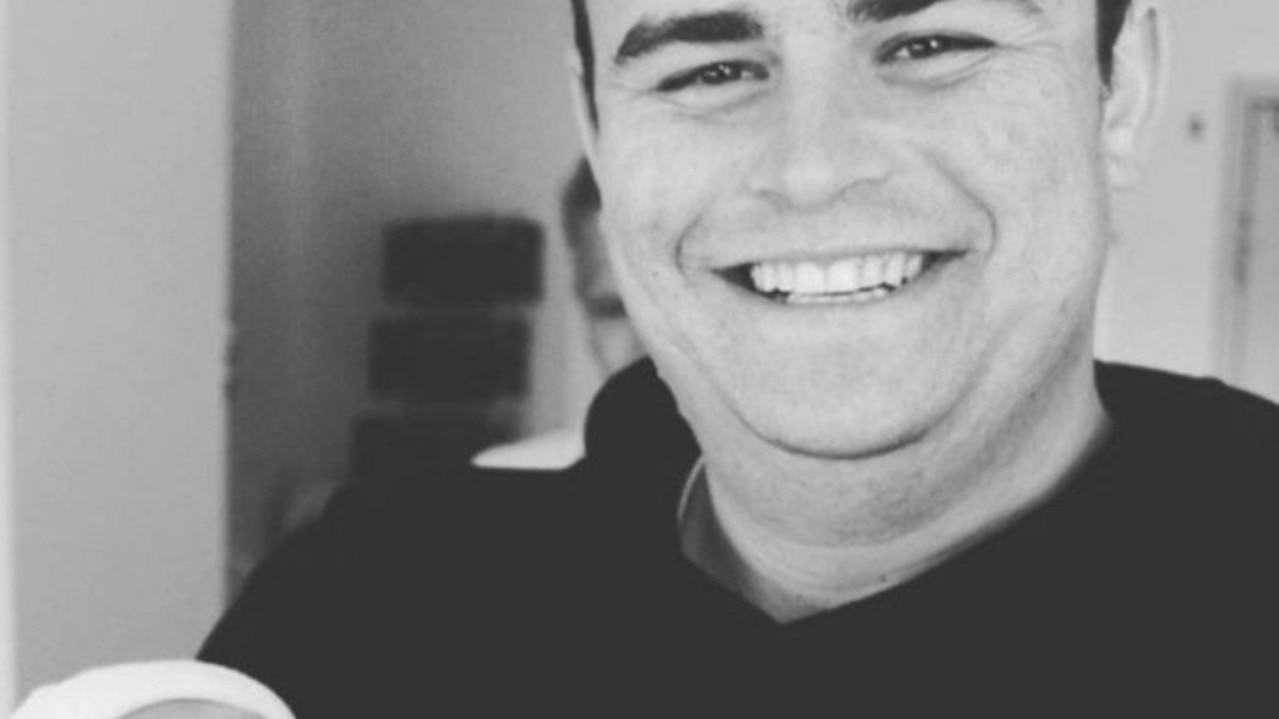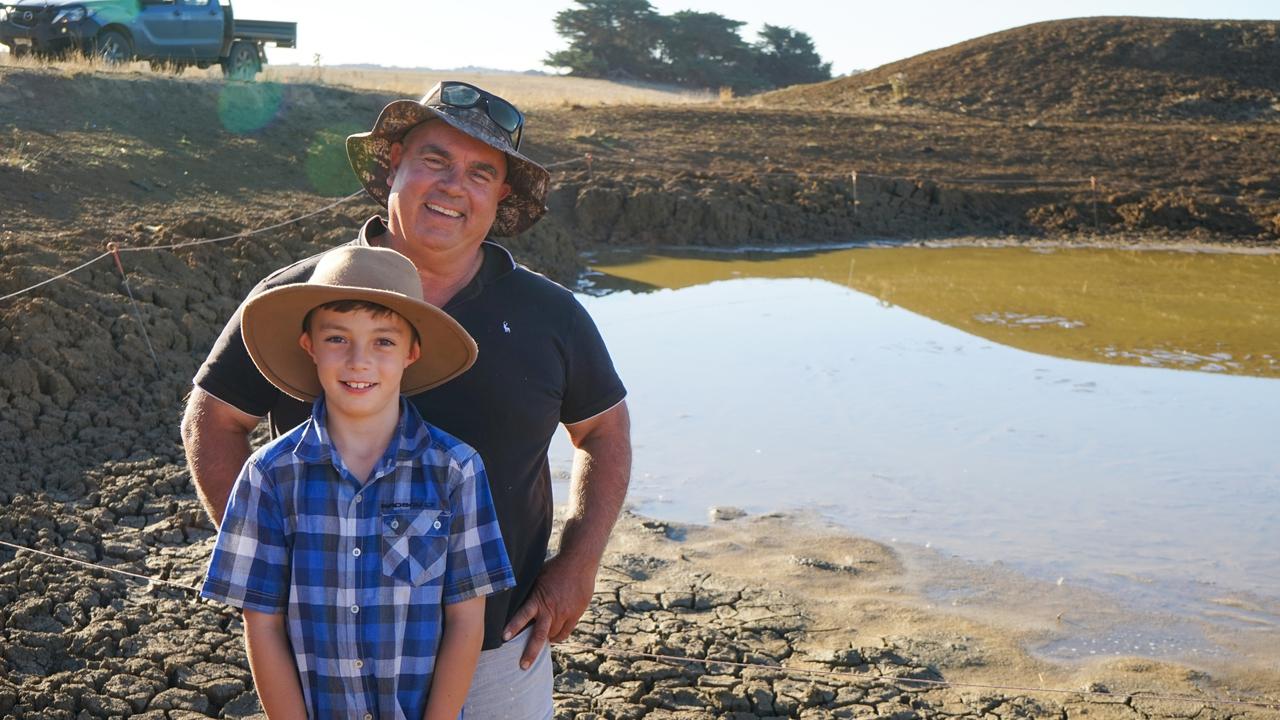Regional Victoria’s most successful pubs:
The owners behind Victoria’s most successful pubs – which employ over 150 people combined – have been revealed. See who owns what.
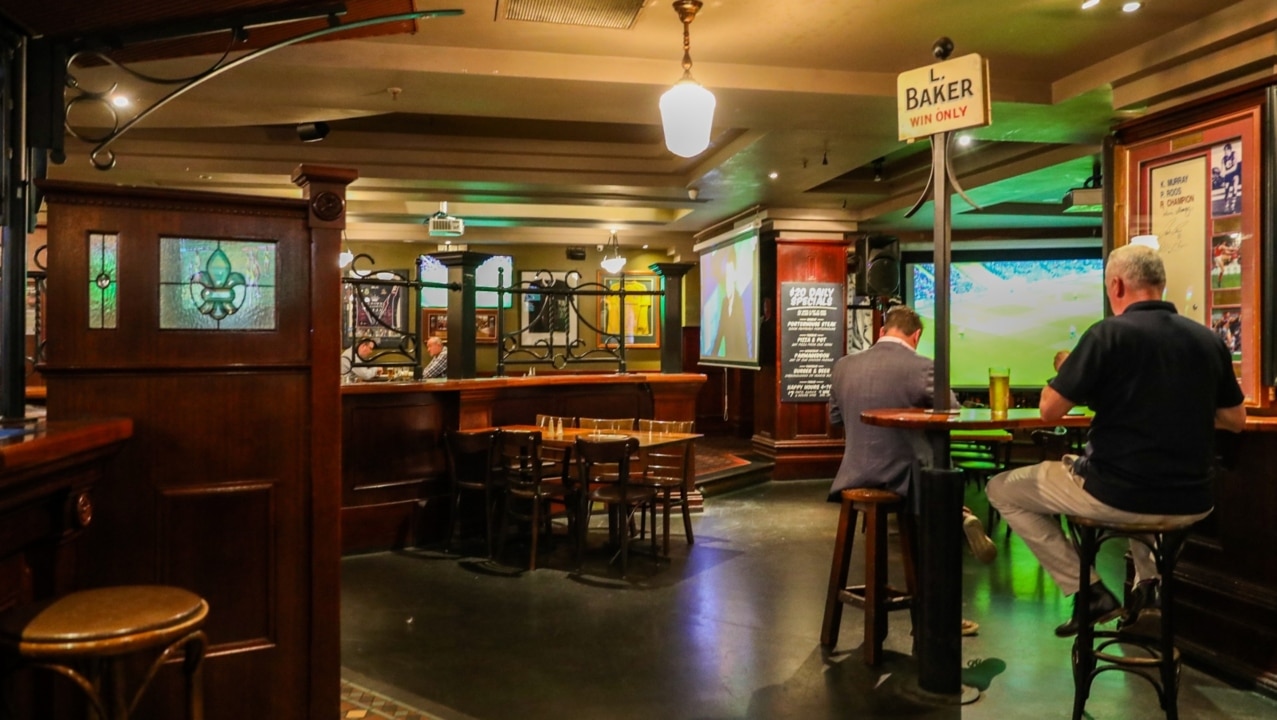
Public houses is the formal phrase for the local watering hole. But what happens when you take the public out of the house?
It was an unfathomable concept at the start of the decade when Australians packed into pubs to count down the minutes from 2019 into 2020.
Four short months later and the first lockdown hit.
First there was shock, then temporary relief as JobKeeper flowed through from Canberra.
Then the second lockdown transpired. And the third. The call of “last drinks” wasn’t just for the night but at least a fortnight.
With the end of lockdowns just before Christmas, regional Victoria’s pubs are starting to return to some form of normalcy.
But it’s not all beer and skittles with the balance sheets behind the bar.
A federal election is only weeks away and Australian Hotels Association (AHA) Victorian chief executive Paddy O’Sullivan says politicians have a special sort of pub test awaiting them.
“We continue to seek a reduction of draught beer tax and the reintroduction of beneficial fringe benefits tax arrangements which help reduce the cost of living,” he said.
“(It would also) reacquaint our corporate and hospitality sectors, providing a much needed boost to daytime trading activity.”

GOLD DIGGERS HOTEL, GEELONG
Located in the Geelong suburb of Newtown, the Gold Diggers Hotel is certainly well named.
Owner Andrew Routley describes the pub as a “hidden gem” on a suburban backstreet and the popular pub has taken out the gold in numerous awards.
But when it comes to beer excise, even pubs that have tasted the sweetest of success say the tax leaves a bitter aftertaste.
“It’s an immediate thing that government can do — lower the beer excise for pubs,” Mr Routley said.
“A cut to excise would ensure that prices are still attractive to the average customer.
“This year has to be one of the toughest periods for pubs in a long time, it doesn’t matter how successful you are. Inflation with meat, vegetables. But the big thing is excise. If there’s a cut to that, it makes prices more competitive and ensures customers keep frequenting their local.”
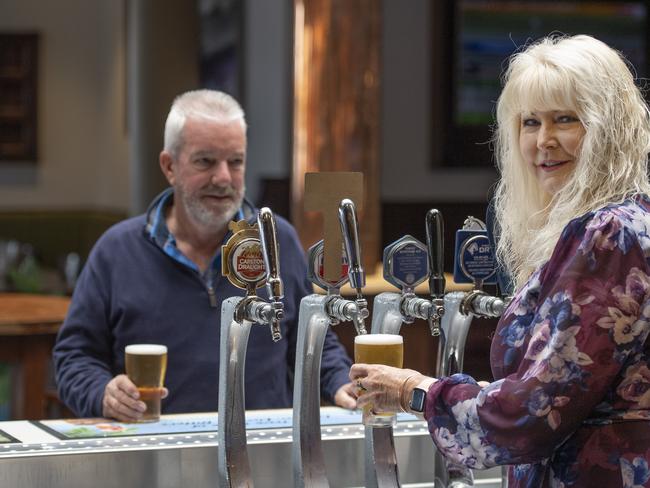
GV HOTEL, SHEPPARTON
Back in 1984, the legendary beer guzzler Bob Hawke was in the Lodge. Although Hawkie was a teetotaller at the time, most of Australia wasn’t.
Pubs were in their heyday. The Victorian Government was easing closing hours and Margaret Valentine was starting work at the Goulburn Valley Hotel.
Nearly four decades on, Ms Valentine is the venue manager and witnessed plenty of change behind the bar. But nothing compares to the past two years.
“It was a rollercoaster ride for all pubs. But things are getting back to normal, people want to get out again,” she said.
More than 40 people work at the GV, one of Shepparton’s biggest pubs. Ms Valentine said the rhythm of customer numbers was reverting to normal, although not as predictable as the pre-pandemic years.
“I think anyone in hospitality says the same thing — it’s harder to predict how many people you’ll have in each day,” she said. “Yesterday for lunch it was packed, today it was pretty quiet. But Saturday nights are still really popular.”
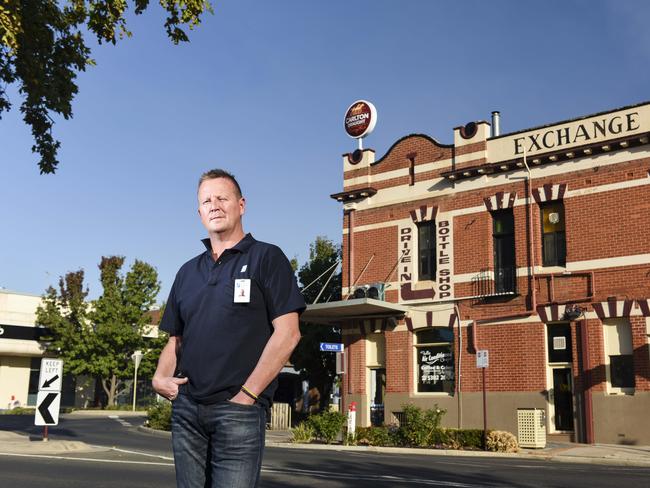
EXCHANGE HOTEL HORSHAM
Zipping up and down the Western Freeway, Nick Murray has seen how both urban and rural pubs have battled through the past two years.
The proprietor of Horsham’s biggest pub — the Exchange — as well as one of inner Melbourne’s most popular hotels — the All Nations in Richmond, Mr Murray says
The Exchange employs 27 staff
“It’s been super tough over the past two years — pubs across Victoria will tell you the same thing,” Mr Murray said.
“We’re thankful for the government assistance through the lockdown period – I’d say most pubs would not have survived without it.
But with federal and state elections looming, Mr Murray said Canberra and Spring Street can assist through payroll tax cuts and beer excise easing.
“Now we’re out of that lockdown situation, there are challenges still for us and every other pub,” he said.
“We were disappointed with the lack of action on excise. Six bucks for a pot (of beer) can be steep for customers and dissuade them from heading to the pub as regularly as they’d like.
“It’s a small change for government but a big boost for pubs. Payroll tax is another one — lowering that would encourage businesses, not just pubs, to expand.”
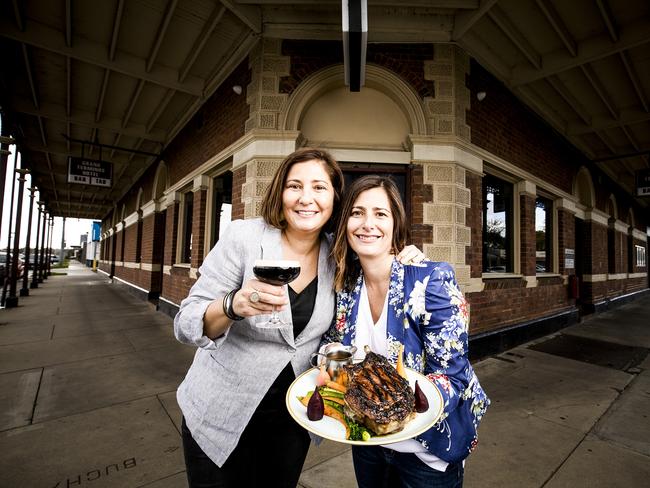
GRAND TERMINUS HOTEL, BAIRNSDALE
While many pubs have battled through two pandemic summers, spare a thought for publicans in east Gippsland.
Throw in the 2019-20 Black Saturday bushfires and they endured a triple-whammy to their patronage figures and bottom lines.
Grand Terminus Hotel co-manager Kendra Clark said while Bairnsdale wasn’t hit as hard as some pubs and hospitality providers further east, the past three years had been difficult.
“We had the bushfires and only a few months later, we had the first lockdown,” she said.
“Then people from Melbourne would come down between lockdowns to spend some money, that was good for a while, and then another lockdown would happen.
“The upside of that period was JobKeeper and other assistance. But I’d say the toughest period is now, because coronavirus is out there and impacting staff numbers.”
The Grand Terminus has between 20 and 30 staff, depending on the season, with the shadow lockdown of the past few months ongoing.
“In the past few weeks, we’ve had two to three staff off and it really stretches the way you operate,” Ms Clark said.
“We’ve also got inflation on everything from beer prices, fruit and vegetable prices, petrol — you name it. I think all of us in hospitality would welcome (government assistance).”
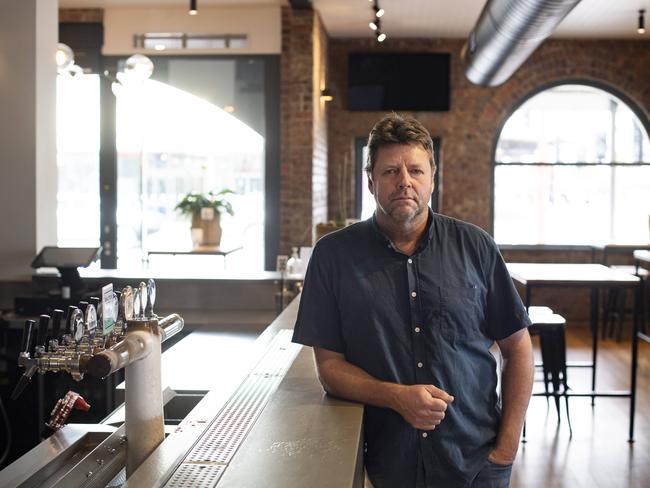
AUSTRAL HOTEL COLAC
IN pre-pandemic times, 10 people enjoying a meal at the Austral Hotel used to be standard guest number for a 21st birthday or a wedding anniversary.
Under the 2020/21 regional coronavirus restrictions, restaurants, pubs and cafes could only seat 10 customers indoors — no matter how large their premises were.
The trouble for the Austral and other heritage buildings is that construction occurred long before beer gardens came into fashion.
More than $1 million was spent to upgrade the Murray Street landmark two years ago but the historic site had limited outdoor area to accommodate the shift to al fresco dining.
Publican Sam Benjamin was one of the leading voices last year for an easing of restrictions, allowing pubs to operate at close-to-normal trading conditions.

SAN REMO HOTEL
Standing within sight of the Phillip Island Bridge, the Williams family have operated the San Remo Hotel since the Second World War.
Three generations have mastered the beer taps, current owner Peter Williams proudly claims.
His grandparents Tom and Margaret kicked off the tradition in the early 1940s, followed by his parents Lyle and Elaine.
And his 85-year-old mum still helps out around the historic hotel.
“She’s got an impressive work ethic. It’s a real family operation,” Mr Williams said.
The veteran publican has roughly 40 staff, depending on the season, and said the past few years without international visitors has created challenges on both sides of the bar.
“You haven’t got the backpackers to be behind the bar and there’s obviously fewer international tourists.”
Mr Williams said the coronavirus era has presented both challenges and opportunities — both of which can be marked with a restorative beer.
“Cutting bulk beer excise would be a big win for pubs. The supermarkets also pay a form of excise but they don’t have the overheads that pubs have to pay. That would be a good move from government,” he said.
“But there are other costs. Insurance has gone through the roof due to floods and fires.
“On the positive side, during the lockdowns, we saw a real desire from customers for takeaway and delivery. That’s continued since the end of lockdown.
“Also, people want to dine more outdoors, particularly in summer. So there’s been downsides as well as upsides.”




